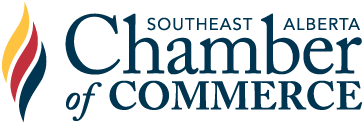Proposed amendments to the Cannabis Regulations mean that cannabis edibles will be legal on Oct. 17. These amendments will usher in a wave of new regulations, not to mention a significant business opportunity for Medicine Hat-based entrepreneurs and investors.
Already we are seeing some market activity in southern Alberta, with Namaste Technologies, a licensed cannabis company, taking a 49 per cent stake in Calgary-based Choklat, a bean-to-bar chocolate maker.
Looking more broadly, research quoted by the Government of Canada suggests that 43 per cent of the cannabis market in mature jurisdictions like Colorado, California and Oregon consists of products other than flower. A 2018 study by Deloitte suggests that six out of every 10 Canadians will choose edible products over smokable products. And Grizzle, a cannabis consultancy, argues that Canada's edibles market will reach $1 billion in short order.
With this fast-growing market in mind, I recently attended a cannabis edibles workshop hosted by the Alberta Food Processors Association. I wasn't alone, as the workshop was well attended by over 70 Alberta-based food processors, entrepreneurs and consultants.
The key takeaway from the workshop was to be reminded again and again that the purpose of the Cannabis Act is to protect young people, reduce illegal activities, and ensure quality supply. The Cannabis Regulations therefore have strict rules designed to reduce the appeal of cannabis products, reduce the risk of overconsumption, and reduce the risk of negative health outcomes from mixing cannabis with alcohol and caffeine.
Companies looking to enter the space must have deep knowledge of the Cannabis Act, the Food and Drug Act, the Safe Food for Canadians Act, and the Consumer Packaging and Labelling Act, not to mention European Union good manufacturing practices and the hazard analysis and critical control points manufacturing system.
For those who can overcome the regulatory hurdles, cannabis edibles present a significant business opportunity for investors and entrepreneurs looking to call Medicine Hat and region home. As one of North America's fastest growing hemp and cannabis production and processing centers, Canada's sunniest city has a lot to offer the nascent industry.
Medicine Hat is home to a skilled labour force with experience in highly regulated industries such as oil and gas, petrochemicals manufacturing, and aerospace and defense. Area farmers are the global leaders when it comes to industrial hemp production. Construction of Aurora Sun, a 1.6-million-square-foot cannabis production facility, is well underway and will employ more than 450 people at full operations. And Folium Biosciences, a global leader in the cannabinoid industry, recently selected Medicine Hat for it's Canadian facility, with plans to build a 100,000-square-foot processing and a 70,000-square-foot manufacturing facility.
Given the region's inherent business and economic strengths, those looking to capitalize on Canada's pending legalization of cannabis edibles owe it to themselves to look at Medicine Hat as a potential base of operations.
Jon Sookocheff is director of business development with Invest Medicine Hat. He can be reached at http://www.investmedicinehat.ca.
